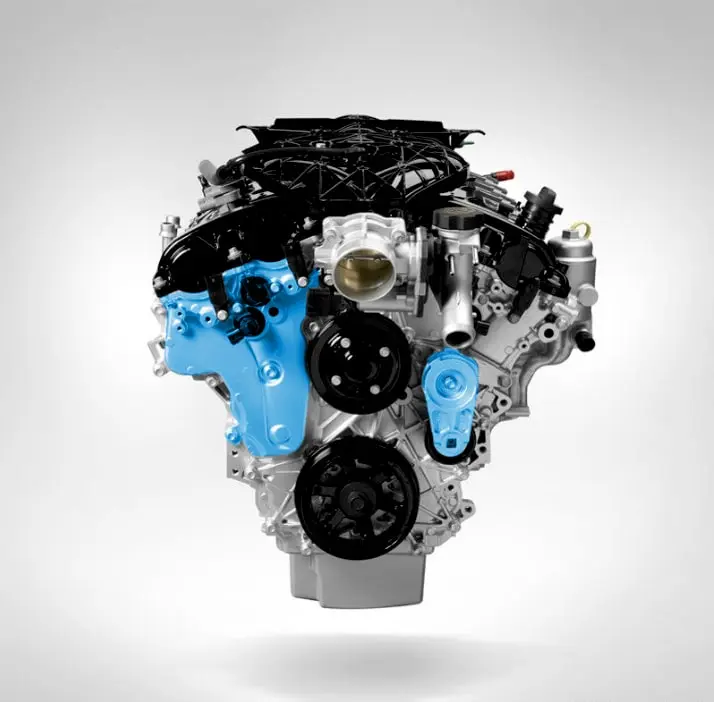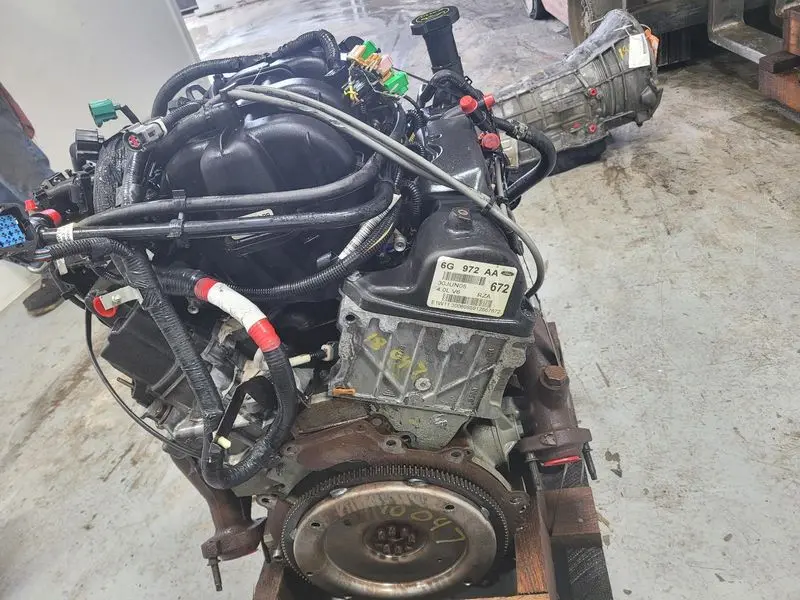Just How to Pick the Right Car Engine for Maximum Performance and Effectiveness
Choosing the appropriate vehicle engine to accomplish an optimum balance of performance and efficiency necessitates a nuanced understanding of different engine kinds and their certain attributes. Factors such as engine displacement, the variety of cylinders, and fuel kind play a pivotal function in determining both power output and gas economic situation. While some may lean towards performance-driven alternatives, others might focus on sustainability and effectiveness. Understanding these dynamics is vital; however, the challenge depends on lining up these characteristics with your individual driving needs and choices. What considerations will eventually assist your choice?
Recognizing Engine Kind
When selecting a car, one of one of the most critical parts to consider is the engine kind, which offers as the heart of the lorry. The engine kind considerably affects the auto's overall performance, longevity, and viability for your driving demands. There are primarily 3 engine types to consider: internal combustion engines (ICE), hybrid engines, and electric engines.
Interior combustion engines remain the most common, operating gas or diesel. They are understood for their power and acceleration, making them appropriate for performance-oriented lorries. They may fall short in gas performance and ecological influence.
Crossbreed engines combine an inner burning engine with an electric motor, providing an equilibrium between performance and gas economic climate. They are progressively preferred for vehicle drivers looking for decreased emissions while still providing adequate power.
Electric engines, powered totally by batteries, are getting traction because of their environmental advantages and lower running costs. They give instantaneous torque and a peaceful driving experience, making them ideal for urban commuting.

Performance vs. Efficiency
Picking the best engine kind involves considering the compromises in between performance and effectiveness. Performance usually refers to just how well an engine can deliver power and acceleration, which is commonly connected with bigger variation engines or those with turbocharging capabilities. These engines commonly give exciting driving experiences and quick feedback times, making them prominent among lovers.
On the various other hand, efficiency focuses on fuel economic situation and reduced emissions. Smaller sized engines, especially those outfitted with advanced technologies such as direct gas injection and variable valve timing, have a tendency to supply far better miles per gallon and minimized carbon impacts. While these engines might give up some power compared to their bigger equivalents, they frequently master daily driving circumstances where high performance is not always required.
Eventually, the selection between performance and efficiency hinges on specific top priorities. A vehicle driver who values perky driving may prioritize a high-performance engine, while somebody seeking cost-efficient travelling might favor an effective alternative. Understanding these trade-offs is vital for making an informed decision that lines up with your driving requirements and lifestyle, ensuring that the chosen engine type complements your assumptions for both performance and performance.
Secret Specifications to Consider
Recognizing crucial requirements is necessary for making an educated choice about the right car engine. When picking an engine, numerous essential factors necessitate factor to consider to guarantee ideal performance and efficiency.
To start with, engine variation, determined in litres or cubic centimeters, is a critical spec. It indicates the complete quantity of the engine's cylinders and normally associates with power result; larger displacements commonly produce even more power. Next, the variety of cylinders plays a significant function in performance characteristics. Engines with even more cyndrical tubes can offer smoother operation and greater power, while smaller setups can improve fuel effectiveness.
Furthermore, the engine's setup, whether inline, V-type, or rotating, influences the total design and efficiency qualities of continue reading this the car - 2.2 ford ranger engine. Turbocharging and supercharging technologies ought to additionally be examined; these increase an engine's power result without substantially enhancing its dimension, hence improving performance
Fuel type is an additional essential factor to consider, as it impacts both efficiency and costs. Finally, the engine's hop over to here compression proportion affects performance and power distribution; a greater ratio typically leads to much better effectiveness, however may require exceptional fuel. By carefully examining these specs, you can choose an engine that lines up with your efficiency and effectiveness goals.
Examining Driving Needs
Examining driving needs is a basic step in figuring out the appropriate car engine for your way of living and usage patterns. If your driving primarily consists of brief commutes in metropolitan settings, a smaller engine with great fuel effectiveness might be adequate.
Think about the surface you commonly navigate. Hilly or sturdy landscapes might demand an engine with greater torque for better efficiency. In addition, assess passenger and freight needs; larger families or those who carry goods might take advantage of automobiles with boosted power and capacity.
It's likewise essential to review your fuel choices. Diesel engines usually use exceptional torque and gas economic climate for heavier vehicles, while fuel engines might offer a smoother and quieter ride. Lastly, factor in environmental factors to consider, as crossbreed or electric engines can offer a more sustainable choice without compromising performance. By thoroughly understanding your driving demands, you can make an enlightened decision that aligns with both performance assumptions and efficiency goals.
Future Patterns in Engine Modern Technology
As the automotive sector remains to progress, technologies in engine technology are leading the way for a lot more lasting and efficient driving experiences. One significant fad is the shift toward electrification, with hybrid and totally electric powertrains gaining prestige. Car manufacturers are spending heavily in battery modern technology to improve power thickness and decrease billing times, eventually improving the functionality of electric automobiles (EVs)
Another arising fad is the advancement of hydrogen gas cell engines. 2.2 ford ranger engine. These systems provide the capacity for zero-emission driving while offering refueling times comparable visit homepage to standard gas engines. In addition, innovations in burning innovation, such as variable compression ratios and improved turbocharging, are enhancing conventional inner combustion engines for far better efficiency and performance
Digital integration is likewise a critical element of future engine modern technology. The application of expert system and artificial intelligence enables real-time data analysis, making it possible for smarter engine management systems that adapt to driving conditions and enhance fuel effectiveness.

Verdict
Finally, choosing the ideal cars and truck engine requires a thorough assessment of different variables, including engine kind, performance requirements, and effectiveness objectives. By comprehending the differences between different engine types and thinking about essential requirements, individuals can straighten their selections with specific driving needs. As innovations in engine technology remain to arise, remaining educated regarding future trends will further enhance decision-making, ultimately causing a lorry that balances efficiency and gas performance properly.
Picking the suitable car engine to achieve an optimal equilibrium of efficiency and efficiency demands a nuanced understanding of numerous engine types and their particular characteristics. There are largely three engine kinds to take into consideration: inner burning engines (ICE), hybrid engines, and electrical engines.
Efficiency normally refers to how well an engine can deliver power and acceleration, which is typically associated with bigger variation engines or those with turbocharging capabilities. Diesel engines typically provide exceptional torque and fuel economic situation for heavier cars, while gasoline engines might offer a smoother and quieter trip.In conclusion, selecting the appropriate car engine demands a detailed examination of different factors, consisting of engine type, performance requirements, and effectiveness goals.